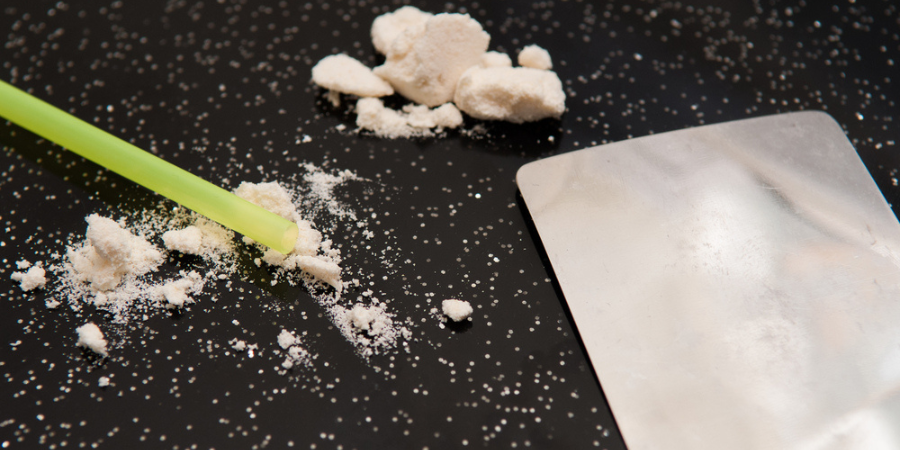Last Updated:
May 28th, 2025
Crack Detox | Dealing with Crack Withdrawal
Overcoming crack cocaine addiction starts with quieting the incessant urge that fuels the cycle. Professional crack cocaine detox is the safest and most effective way to stop using crack and manage the intense cravings and withdrawal symptoms that pull many people back in. Just the thought of crack cocaine detox can be scary, and myths and misconceptions can prevent many people from starting the process. Understanding how to detox your body from crack cocaine in a safe and lasting way is crucial for overcoming these concerns.

What is crack cocaine addiction?
Crack cocaine, a potent form of cocaine, hijacks the brain’s reward mechanism by altering the way it registers pleasure. With chronic crack cocaine use, it becomes hard to get pleasure from anywhere else and eventually, your body and brain start to count on crack to do their normal jobs. If deprived of crack cocaine suddenly, the brain and body become confused and intense crack cocaine withdrawal symptoms can occur as your systems are suddenly thrown out of balance.
The goal of crack cocaine detox is to eliminate physical dependence while carefully controlling potentially severe crack cocaine withdrawal symptoms. By methodically tapering the levels of crack cocaine in your body, detox allows you to adjust gradually, helping your systems stabilise.
Crack cocaine detox cleanses your body of toxins and helps clear your mind, setting a solid foundation for the therapeutic work ahead. This initial clearing is essential as it prepares your mind and body to address and resolve the underlying causes of your dependency during later crack cocaine rehab therapy.
What is crack cocaine withdrawal?
When a person addicted to crack cocaine attempts to quit suddenly by themselves, this is often referred to as going “cold turkey.” While this approach might be possible for those who use crack cocaine relatively infrequently and in small amounts, it presents significant challenges for regular users.
Abruptly stopping crack cocaine can thrust an addicted person into withdrawal, sending the brain and body into a state of shock due to the sudden absence of the drug. It is this that triggers crack cocaine withdrawal symptoms, which last until your systems have adjusted or until you relapse and start using again.
Symptoms of crack cocaine withdrawal are not the same for everyone, but some of the most commonly experienced include:
- Intense crack cocaine cravings
- Agitation and irritability
- Feelings of depression and hopelessness
- Terrible anxiety
- Extreme exhaustion
- Increased appetite
- Sleep disturbances like insomnia and frightening dreams
- Rapid and unpredictable mood swings
- Physical pain, aches and discomfort
- Psychotic symptoms like hallucinations and paranoia
How long does it take to detox from crack cocaine?
One of the questions we are asked most often at Addiction Helper is, “How long does crack cocaine withdrawal last?” In fact, the timeline for withdrawal can differ greatly from one person to another, shaped by factors like how long you’ve been using crack, how often and in what kind of doses. Co-occurring mental health conditions like depression or anxiety and physical health problems can also affect the severity and progression of cocaine withdrawal symptoms. Simultaneous withdrawal from other substances can also add to the discomfort and potential dangers, making crack withdrawal symptoms even more challenging.
For a clearer picture of the detox process, here is a standard timeline for crack cocaine withdrawal:
This prolonged phase, known as Post-Acute Withdrawal Syndrome (PAWS), always needs ongoing treatment and support networks to help those affected stay on the path to crack cocaine recovery. It is a time when cravings can pop up unexpectedly, sleep can be constantly disrupted, and your moods can be unpredictable. With the right support, however, these symptoms will get less intense by the day until you are completely free of them.
The benefits of professional crack cocaine detox
Though detoxing at home may appear more comfortable and discreet, the substantial advantages of a professional crack cocaine detox centre can make all the difference. Some of the benefits for your recovery include:

Contact us today for crack cocaine detox support
The UK boasts a broad spectrum of excellent crack cocaine detox programmes. The only problem with so many options is that it can make it hard to narrow down your choice. We have experience matching individuals with the right crack cocaine detox programme to suit their needs. Get in touch with us today, and we can discuss your options to help you make an informed choice.
Our compassionate team are ready and available to take your call, and guide you towards lasting the lasting addiction recovery you deserve.
Frequently Asked Questions
(Click here to see works cited)
- Durrani, Mateen. “Cocaine detox | Cocaine withdrawal symptoms & treatment.” Oasis Bradford, 18 December 2024, https://www.oasisrecovery.org.uk/detox/drug/cocaine/. Accessed 19 February 2025.
- Recovery Lighthouse. “Crack Cocaine Addiction Treatment | Crack Cocaine Rehab & Detox.” Recovery Lighthouse, 27 January 2025, https://www.recoverylighthouse.com/rehab-treatment/drug/crack-cocaine/. Accessed 19 February 2025.
- UK Addiction Treatment Centres. “Crack detox | Crack cocaine withdrawal & symptoms | UKAT.” UK Addiction Treatment Centres, 10 October 2023, https://www.ukat.co.uk/detox/drug/crack-cocaine/. Accessed 19 February 2025.

